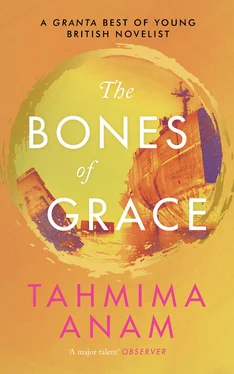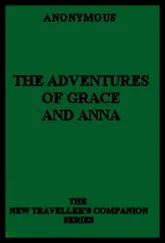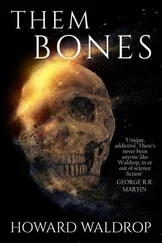I had to go to the MCZ and pack up my lab.
You checked your watch. ‘Call me when you’re done,’ you said. I wished you good luck for your grandmother’s funeral. I wanted so much for you to hold my hand, to put your arms around me like you had last night, but the moment, if it had ever existed, had passed, and so I settled for walking back down Mass Ave with you, the sidewalk warm beneath our shoes, everything brilliantly cloudless above.
I shared a large, brightly lit room on the ground floor of the Museum of Comparative Zoology with six other graduate students and a visiting professor. A bank of windows faced out towards Kirkland Avenue. Everything smelled of old wood. When I arrived to pack up my desk, Kyung-Ju was photographing the ankle bones of the Pakicetus we had borrowed from the University of Michigan, and I could hear some of the others in the back room with the scanner. The lab had been my home for the last three years, and after breakfast with you I found myself indulging in a moment of nostalgia, because I knew now that whatever happened on the dig, I would return to Dhaka, and that meant the end of late nights in here, over-sugaring my tea and arguing about when the Tethys had finally dried up. The department was moving anyway, to a brand-new facility on the other side of the quad.
I had first discovered the whale while leafing through an article in National Geographic , which my parents, like so many of their generation, dutifully collected. Photographs of Ambulocetus , with her hind legs and long, slender mouth, fascinated my younger self. I was naturally curious about origins and unusual digressions in history, such as a whale who walked and also swam, while all the other animals were pulling themselves out of the sea and making their homes on land. My mother had not been pleased. ‘Fish?’ she kept saying, when I told her I was doing a PhD in Evolutionary Biology. My mother had been an ambulance driver and a revolutionary and the kind of woman who stood in front of picket lines. She had been in a war. And I was hiding behind very large sea creatures. But what was my alternative? Medicine, like her? I was good at science, but I did not like bodies, at least, not the ones that hovered between life and death, the scale tipped by my hand — too much responsibility, that — or English? my love of novels started young, deepened by the lack of company, and although my parents’ shelves were on the dry, political side, I read Ibsen and The Last of the Mohicans and Bleak House , and, too early, Jane Eyre , and there were totems in those books: with every age I recognised the clues that would lead me, Gretel-like, through life, but who wants to know and be known like that? Not me. Jane was poor, obscure, plain, and little, I did not want to know her, or the her that lurked within me. Hiding in plain sight, that was my habit, or maybe I should have been some kind of humanitarian, but the reasons against that should be obvious by now, because I would have been looking around the corner for myself, the subject and object at the same time. Bettina would have said it was possible to auto-anthropologise, but that sounded too much like ‘apologise’; I would have spent the whole time feeling sorry for all the people I would never become, trapped in guilt like my mother, and again we return to her, because she made everything possible and impossible.
So, you see, there was nothing for me but those skulls and bones and taxonomy and strata, Hutton’s earth, with ‘no vestige of a beginning, no prospect of an end’, that was what I chose: the earth with its hot centre, and its rocks that threw up history, and bones, enduring bones, skipping back to a time when I couldn’t be found.
‘Ready for departure?’ Ju said, holding the camera at arm’s length and clicking. She smelled strongly of soap. Neither of us mentioned the night before.
‘Not nearly,’ I said. ‘Though I finished packing the apartment late last night when I couldn’t sleep.’
I had brought a small carry-on suitcase with me the week before, when I’d begun putting away my papers. Now I started with the filing cabinet next to my desk. There were old articles I had photocopied; course syllabi; teaching materials for Archaeology 101, which I had worked on as a tutor for three semesters, winning rave reviews from my students; essays; transcripts; the whole catalogue of my three years as a graduate student. I threw most of it away, keeping only a thin file of papers that related to the dig. Around midday, I sped up, clogging the blue recycling bin and bequeathing my model of the 50 million-year-old Rodhocetus balochistanensis skull to Ju. We hugged goodbye, Ju holding on for an extra few seconds by way of apology, and I promised to keep in touch. I took out my phone and dialled your number, but there was no reply. I thought I’d sit under one of the big oak trees in the Quad for a few moments before trying you again, but when I went through the double doors, dragging the suitcase behind me, there you were on the steps. You had removed your jacket and rolled up the sleeves of your shirt, and for a brief moment I imagined you making love to your Indian girlfriend and how your forearms would have straddled her body and how she must so desperately miss those forearms, in fact, was probably thinking about them at this moment, that she and I must be having the same dream, and how much she would hate me for being closer to your forearms than she, thousands of miles away in Delhi. Poor girl. Poor Delhi.
‘Are you all right?’ I asked. You passed me a pamphlet, printed on craggy recycled paper. Clementine Alexandra Rowena Morris. Cartographer, Adventurer, Poet, Activist, Mother, Dancer, Artist .
The day had cracked open, the sidewalks shimmering in the heat. We walked in silence, struggling with the upward slope of Mass Ave as it neared the wider streets of Somerville. You stopped to look in the window of an origami shop and we discussed paper, and folding, and cranes, then we turned into a side street, and you led me to a pale yellow house with rocking chairs on the porch and wilting daffodils in the front yard. The sort of house I had walked by many times, Obama posters in the window, the smell of laundry and Thanksgiving, modest, Protestant, indifferently grand.
The door was open. A few people stood on the porch, and, as we approached, one of them waved and called out your name. I saw a tall man with wide shoulders and a square, friendly face who shook my hand and introduced himself as your uncle, and as we passed through the front door and more guests said hello and patted you on the back, you took my hand and guided me through. People’s shoes were noisy on the wooden floorboards and their voices rose up to the high, white ceiling. The house was bright and frayed and bigger than it had seemed from the outside. We entered a room at the back with tall windows and double doors that opened onto the garden beyond. Immediately you pointed out a woman who you said was your mother. She was slim under long, loose layers of black and dark grey, with tousled hair and a pair of eyes that matched yours in warmth and colour. You told her my name and she smiled distractedly and asked me to make myself at home. I gripped your arm, and we turned towards an older woman with a narrow face. She held out a thin hand, the bones close to the surface, and you told me she was your great-aunt.
‘Hello,’ she said. ‘I’m Autumn, Clementine’s sister.’ Her voice was reedy and English.
‘Zubaida Bashir. It’s lovely to meet you.’
‘I met Zubaida last night, at the Shostakovich,’ you said.
Autumn asked me if I was a musician. Although they must be around the same age, she could not have been less like my grandmother. Nanu had fewer lines around her eyes, but in her manner she was much older, her ironed saris, the pearl necklace she always wore around her neck, and Autumn, though her face was craggy and she had a slight tremor in her hands, appeared as though she took long walks in the snow. I told her I was no musician, but a palaeontologist.
Читать дальше












